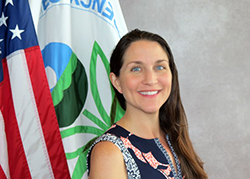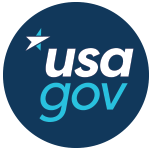RCRA Expert Brownbag Series
Sponsored by: Regions 1, 6, 9, and 10 and the Office of Resource Conservation and Recovery
Archived: Wednesday, March 4, 2020
The Next Best Thing to Completing Corrective Action: Connecticut Stewardship Permits and Other Long-Term Stewardship Approaches
Wednesday, March 4, 2020, 1:00 PM-2:00 PM EST (18:00-19:00 GMT)
What's the next best thing to completing a RCRA clean up? Long-Term Stewardship (LTS)! Learn about Connecticut's approach to RCRA facilities subject to Corrective Action. Connecticut's RCRA Stewardship Permits are Corrective Action Post-Closure Permits that spell out schedules of compliance and provide transparent certainty for current and future facility owners. Transferring permits is simpler than re-issuing enforcement actions and ensures continuity for clean ups. The tools are right there in the regulations, so join the webinar and learn how your state can advance LTS to keep the promises of environmental remedies into the future.
EPA Region 1 will start the webinar with a brief overview of its regional approach to the LTS process and how it has worked to incorporate Connecticut's state programs into that process. Connecticut Department of Environmental Protection (CT DEEP) will follow with an explanation of its Stewardship Permits and other LTS program elements.
This webinar is third in a series of webinars focusing on RCRA Corrective Action LTS. It follows the July 24, 2019 LTS Steering Committee update and showcase of Wisconsin's Continuing Obligations Program and the November 6, 2019 webinar on Virginia's LTS program and its collaboration with EPA Region 3.
Accessibility, Recording, and Content Disclaimer
Rehabilitation Act Notice for Reasonable Accommodation
It is EPA's policy to make reasonable accommodation to persons with disabilities wishing to participate in the agency's programs and activities, pursuant to the Rehabilitation Act of 1973, 29 U.S.C. 791. Any request for accommodation should be made to Stephanie Lamster at 212-637-3465 or lamster.stephanie@epa.gov, preferably one week or more in advance of the webinar, so that EPA will have sufficient time to process the request. EPA would welcome specific recommendations from requestors specifying the nature or type of accommodation needed. Please note that CLU-IN provides both alternate phone call-in options and closed captioning for all webinars, and requests for these specific accommodations are not necessary.
Webinar Recording
By participating in this CLU-IN webinar, you automatically agree to authorize recording of audio and visual content presented during this live event and consent to subsequent use of this recording in the public domain by the U.S. Environmental Protection Agency. This recording may include questions, comments and poll responses provided by you during the live event in addition to your name, voice, image or likeness. This recording will be made available after the conclusion of the live event as part of the CLU-IN webinar archives, and will remain available indefinitely. If you do not wish to consent to the recording, please do not join the live event, and contact Jean Balent at 202-566-0832 or balent.jean@epa.gov to discuss your concerns.
Content Disclaimer
This webinar is intended solely to provide information to the public. The views and opinions expressed as part of this webinar do not necessarily state or reflect those of the U.S. Environmental Protection Agency. It is not intended, nor can it be relied upon, to create any rights enforceable by any party in litigation with the United States, or to endorse the use of products or services provided by specific vendors. With respect to this webinar, neither the United States Government nor any of their employees, makes any warranty, express or implied, including the warranties of merchantability and fitness for a particular purpose, or assumes any legal liability or responsibility for the accuracy, completeness, or usefulness of any information, apparatus, product, or process disclosed, or represents that its use would not infringe privately owned rights.
Presenters:
 Sebastian Rodriguez, U.S. EPA Region 1 (rodriguez.sebastian@epa.gov or 617-918-1288)
Sebastian Rodriguez, U.S. EPA Region 1 (rodriguez.sebastian@epa.gov or 617-918-1288)
Sebastian Rodriguez started with US EPA Region 1 in 2015 and currently serves as a remediation project manager overseeing cleanups under both the RCRA and TSCA programs. He has a Bachelor of Science in Natural Resources Management from Auburn University. Prior to working at EPA, Sebastian was a research technician for the US Geological Survey. Sebastian chairs EPA's Long-Term Stewardship Practitioner's workgroup and is also active in EPA's data management and GIS communities.
Sandy Brunelli, Connecticut Department of Energy and Environmental Protection (CT DEEP) (Sandy.Brunelli@ct.gov or 860-424-3300)
Sandy Brunelli stared with the Connecticut Department of Energy and Environmental Protection (CT DEEP) in 1992 and currently serves as the state's Corrective Action Program Coordinator and liaison with EPA Region 1. She has a Bachelor of Science in Environmental Earth Science from Eastern Connecticut State University. Prior to working at CT DEEP, Sandy worked as an environmental consultant, conducting environmental site assessments, audits, and RCRA closures. Sandy has previously served on ASTSWMO's Corrective Action and Permitting Task Force.
Diane Walworth Duva, Connecticut Department of Energy and Environmental Protection (CT DEEP) (Diane.Duva@ct.gov or 860-827-2756)
Diane Duva has worked for CT DEEP since 1992 and currently directs the Emergency Response Planning Office. She previously conducted field inspections, implemented RCRA enforcement actions, supervised RCRA Corrective Actions, coordinated brownfields policies, developed materials management policies, and directed energy efficiency policy and programs for the agency. Diane graduated from Brown University and earned a master's degree in environmental management from the Yale School of Forestry and Environmental Studies.
Moderators:
 Jean Balent, U.S. EPA Office of Superfund and Emergency Management (OSEM) (balent.jean@epa.gov or 202-566-0832)
Jean Balent, U.S. EPA Office of Superfund and Emergency Management (OSEM) (balent.jean@epa.gov or 202-566-0832)
Ms Balent is on the staff of the EPA's Technology Innovation and Field Services Division where she has worked to collect and disseminate hazardous waste remediation and characterization information since 2003. Ms Balent manages the Clean Up Information Network website and actively supports online communication and collaboration resources available to EPA. She formerly worked with the US Army Corps of Engineers Environmental Engineering Division in the Buffalo District. Ms Balent was also a member of the SUNY-Buffalo Groundwater Research Group where she constructed and tested large scale models of groundwater flow. Ms Balent has also conducted research relating to the Great Lakes, environmental remediation, and brownfields re-development. She holds a Bachelor's degree in environmental engineering from SUNY-Buffalo and a Master's degree in Information Technology from AIU.
Stephanie Lamster, EPA Region 2 (lamster.stephanie@epa.gov or 212-637-3465)
Stephanie Lamster works in EPA’s Region 2 office as the Lead Region Coordinator for RCRA. Stephanie joined the Agency in 2004 as a Presidential Management Fellow. She has held a variety of positions within the EPA including working on indoor air quality in Headquarters, serving as Special Assistant to the Regional Administrator in Region 3, and serving as a NEPA Reviewer and Endangered Species Act Coordinator in Region 2. Stephanie studied environmental science at Barnard College and has masters degrees in both Conservation Biology, and Environmental Policy from Columbia University.




